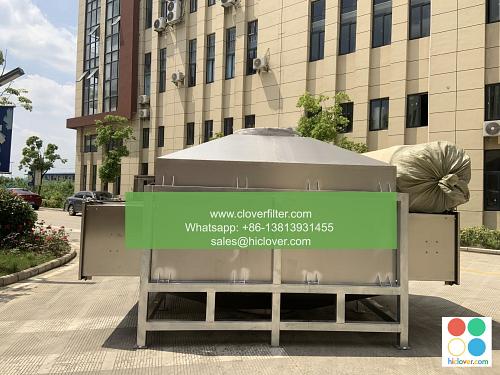The Different Types of Air Filter Groups: A Comparison

Air filtration is a critical aspect of maintaining good indoor air quality, and with various types of air filters available, it can be overwhelming to choose the right one. In this article, we will delve into the different types of air filter groups, comparing their characteristics, advantages, and application areas. We will also highlight the key benefits of each type, including energy efficiency, indoor air quality improvement, and cost-effectiveness.
1. Mechanical Air Filters
Mechanical air filters are the most common type of air filter, using a physical barrier to capture particles and contaminants. They are highly effective in removing dust, pollen, and other airborne particles. Mechanical air filters are widely used in residential, commercial, and industrial applications, including heating, ventilation, and air conditioning (HVAC) systems. Their key benefits include easy maintenance, low cost, and compatibility with existing systems.
2. Electrostatic Air Filters
Electrostatic air filters use an electrostatic charge to attract and trap particles, making them highly efficient in capturing small particles and odors. They are ideal for allergy sufferers and asthma patients, as they can remove 99.97% of particles as small as 0.3 microns. Electrostatic air filters are commonly used in residential and commercial applications, including air purifiers and whole-house filtration systems. Their key benefits include high efficiency, low maintenance, and energy efficiency.
3. Activated Carbon Air Filters
Activated carbon air filters use activated carbon to absorb gases, odors, and chemicals. They are highly effective in removing volatile organic compounds (VOCs) and other gases that can cause indoor air pollution. Activated carbon air filters are commonly used in commercial and industrial applications, including air purification systems and odor control systems. Their key benefits include high absorption capacity, low cost, and easy replacement.
4. HEPA Air Filters
HEPA (High Efficiency Particulate Air) air filters are highly efficient in capturing 99.97% of particles as small as 0.3 microns. They are widely used in medical facilities, laboratories, and cleanrooms, where high air quality is critical. HEPA air filters are also used in residential applications, including air purifiers and vacuum cleaners. Their key benefits include high efficiency, long lifespan, and low maintenance.
5. Smart Air Filters
Smart air filters are a new type of air filter that uses advanced technology to monitor and control indoor air quality. They can detect particulate matter, gases, and other pollutants, and adjust their filtration settings accordingly. Smart air filters are ideal for smart homes and commercial applications, including office buildings and hotels. Their key benefits include real-time monitoring, energy efficiency, and automated maintenance.
Comparison of Air Filter Groups
| Air Filter Type | Efficiency | Application Areas | Key Benefits |
| — | — | — | — |
| Mechanical | 80-90% | Residential, Commercial, Industrial | Easy maintenance, low cost, compatibility with existing systems |
| Electrostatic | 99.97% | Residential, Commercial | High efficiency, low maintenance, energy efficiency |
| Activated Carbon | 90-95% | Commercial, Industrial | High absorption capacity, low cost, easy replacement |
| HEPA | 99.97% | Medical, Laboratories, Cleanrooms, Residential | High efficiency, long lifespan, low maintenance |
| Smart | 90-99% | Smart Homes, Commercial | Real-time monitoring, energy efficiency, automated maintenance |
In conclusion, each type of air filter group has its own unique characteristics, advantages, and application areas. By understanding the key benefits and limitations of each type, you can choose the best air filter for your specific needs, whether it’s for residential, commercial, or industrial applications. Remember to consider factors such as energy efficiency, indoor air quality improvement, and cost-effectiveness when selecting an air filter. It seems like you haven’t provided a prompt or question for me to respond to. Could you please provide more information or clarify what you would like to discuss? I’ll do my best to assist you.

